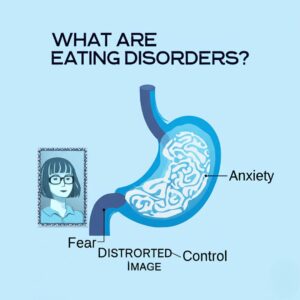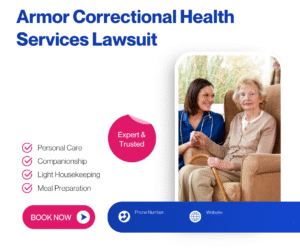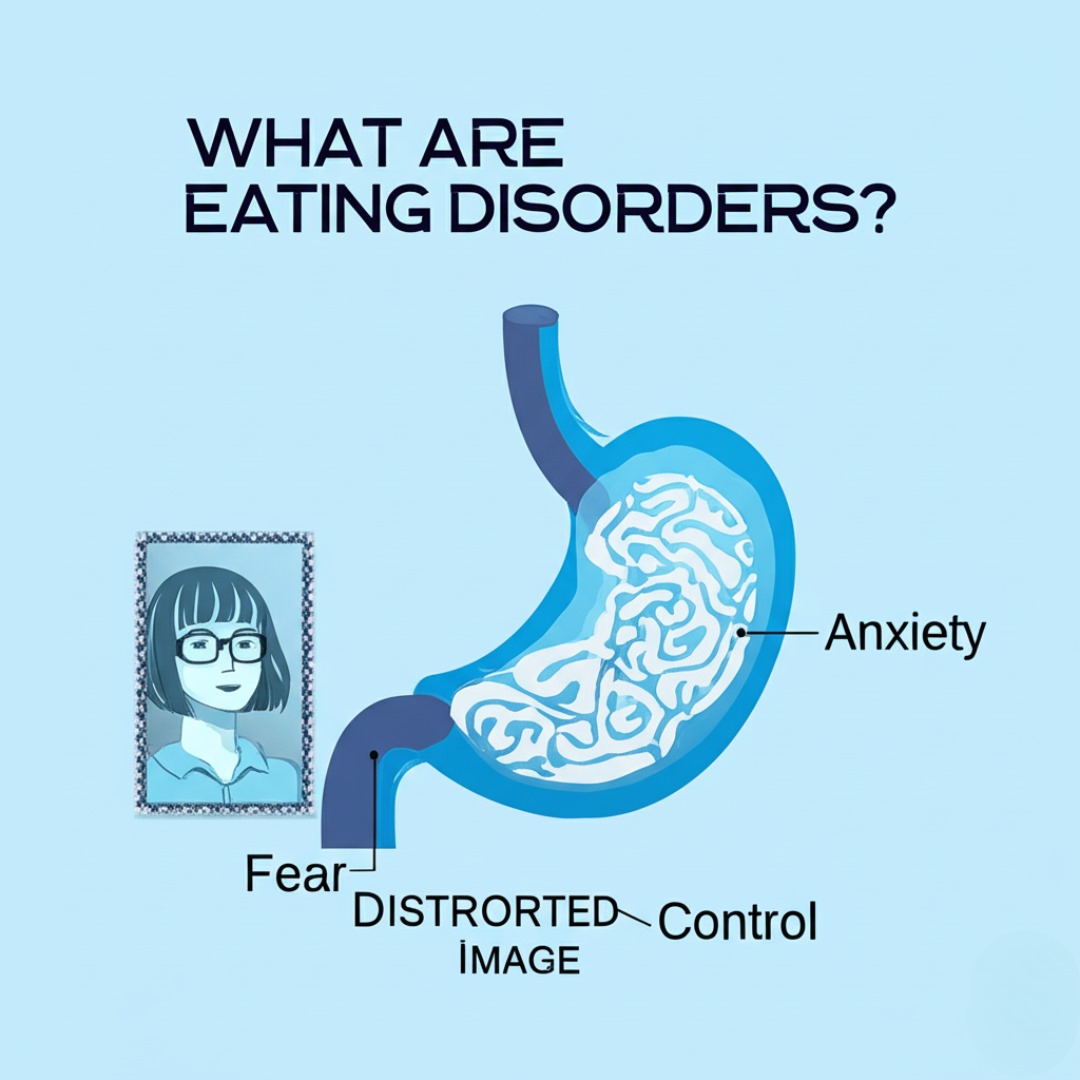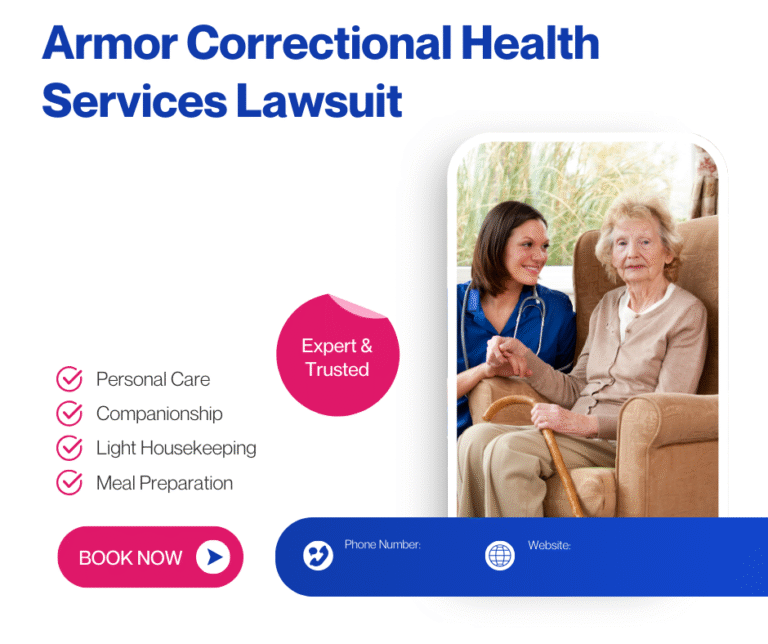The stigma associated with these eating disorder help keeps people from speaking out. These are complex illnesses of the mind that have affected millions across the world; an eating disorder is so-called because of the physically observable nature of the disorder-but these disorders also impart deep emotional pain and lessen the zest for living. The aid offered to folks with eating disorders may be life-saving in case it is needed by anyone, or if you yourself are facing this problem.
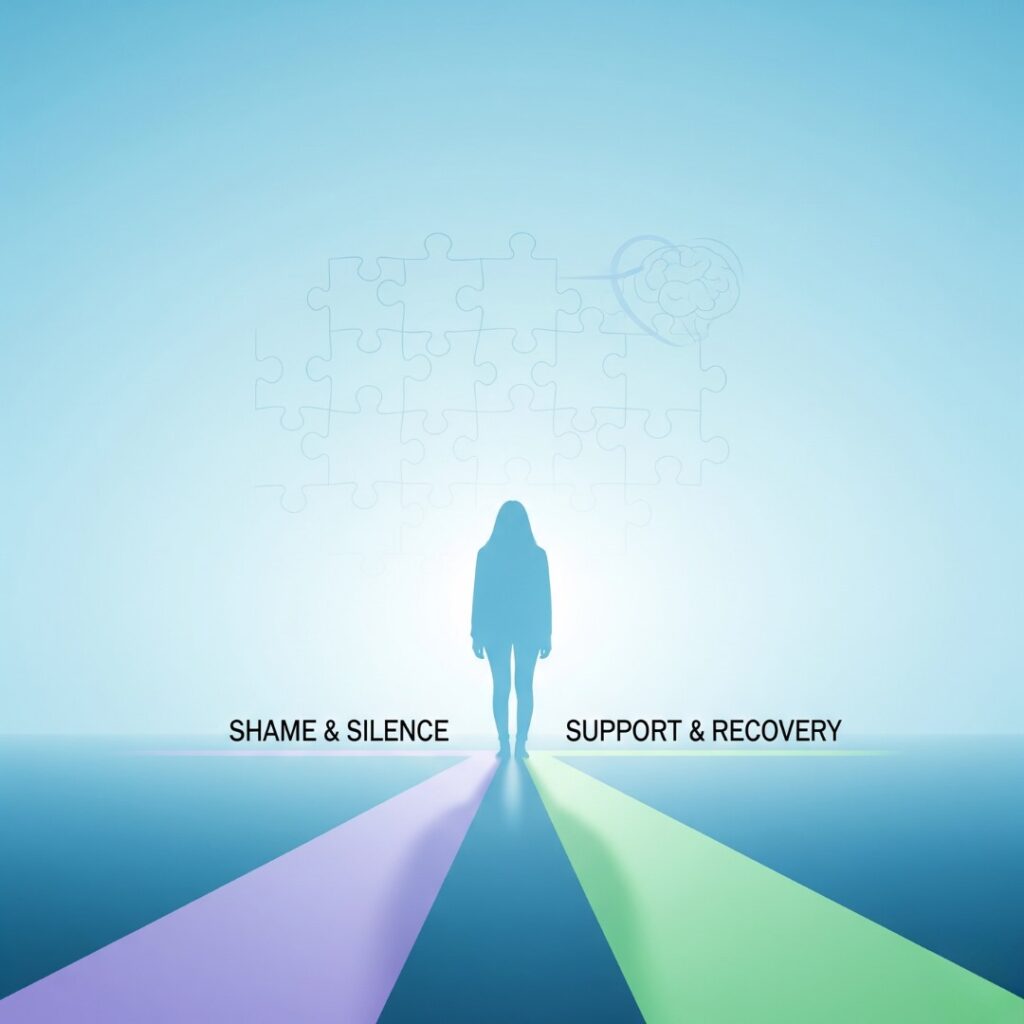
Consider this a fully exhaustive yet SEO-friendly guide discussing eating disorders, from causes to symptoms, types, treatments, and the support systems available. This is the portal to visit if one requires help for himself or herself, for someone else, or merely wants to gain extra knowledge regarding the disorder. Secondary keywords have also been targeted in an attempt to make the article factorably rounded and better searchable.
What Are Eating Disorders?
Eating disorders are potentially life-threatening, severe psychiatric conditions which result in unhealthy or irregular conditions of feeding and concerns about body image. Morning Delays can mean paying a heavy price both physically and psychologically if they are untreated. Treatment for eating disorders must be given immediately so that intervention and recovery can take place.
Common Types of Eating Disorders
Eating disorders need to be narrated to identify symptoms in an early phase and treat them in the best way possible. Some features are unique to some disorders-all infringe on the physical and emotional well being of the person.
Anorexia Nervosa
Anorexia nervosa is a condition that consists of an extreme fear of becoming fat and body-image distortion. Being extremely thin, people with this disease may view themselves as overweight.
- The rigid and extreme regimen of food restriction
- An obsessive drive for thinness
- Extremely depleted body weight and malnutrition
- A distorted view of body size and shape
- Excessive exercise or the occasional use of diet pills may come into play
Bulimia Nervosa
Eating disorder behaviors include binge-eating episodes followed by compensatory acts to prevent weight gain. There is always an air of secrecy over these behaviors, facilitated sometimes by guilt or shame. Some of the symptoms include:
- Recurrent binge-eating episodes
- Purging (illegally induced vomiting, use of laxatives, and diuretics)
- Overexercising or fasting
- Feeling out of control during a binge
- Body weight may tend to remain within normal limits
Binge Eating Disorder (BED)
BDE is the most common eating disorder. It is characterized by repeated binge eating episodes with NO purging.
- The feeling of eating a huge amount of food in an unusually short period
- Feeling of lack of control during the episodes
- Eating without being hungry to the point of discomfort
- Feelings of guilt, shame, or distress after overeating
- It usually leads to weight gain and health issues.
Other Specified Feeding or Eating Disorders (OSFED)
OSFED categorically includes the remaining such eating disorders that did not fit into the classification of anorexia, bulimia, or BED but rather harm one physically and psychologically.
- Atypical Anorexia Nervosa: Meets all criteria for anorexia except low body weight
- Purging Disorder: Purging without binge eating
- Night Eating Syndrome: Excessive food intake at night
- Equally serious and may require similar treatment approaches
Signs and Symptoms
Early recognition of warning signs will lead to faster assessment and better outcomes. Signs include:
- Rapid or extreme weight changes
- Preoccupation with food, dieting, or body image
- Skipping meals or developing rigid food rituals
- Avoidance of meals and social situations involving food
- Physical symptoms like fatigue, dizziness, or digestive problems
- Mood swings, irritability, or withdrawal from friends and family
Causes and Risk Factors
Eating disorders are extremely multi-dimensional and interplay-riddled comorbid conditions, with no single cause. They are usually a result of three possible combinations of genetic, psychological, and environmental factors.

- Biological: Family history of eating disorders, neurotransmitter imbalances
- Psychological: Low self-esteem, anxiety, perfectionism, depression
- Sociocultural: Media and society placing pressure on an individual to conform to an unrealistic standard of beauty
- Trauma: Past experiences such as bullying, abuse, neglect, or significant loss
Why Seeking Help for Eating Disorders Matters
Dieting disorders can be life-threatening.
- Cardiovascular Issues, Such as Arrhythmias or Heart Failure
- GI Issues, Such as Ulcers or Constipation
- Reproductive Issues, Such as Amenorrhea or Infertility
- Osteoporosis, Due to Nutrient Deficiency
- Details of each of the different mental illnesses, identifying symptoms and providing treatment measures, are shown to have the requisite understanding and provide the desirable help.
The Importance of Early Intervention
Starting treatment early tremendously increases the potential for full recovery. The treatment options may include:
- Monitoring of medical and nutritional provisions, called `being’ Cognitive Behavioral Therapy (CBT)
- Therapy falls in the category of “group,” and there is support, and when it comes on, the family makes up the group.
- Medications are administered to individuals with co-occurring disorders.
- You will have to understand that the battle for help is not cowardice but, instead, the entrance stage for the concept of healing in itself, leaving the opportunity for recreation of a life with peace and prosperity.
Effective Treatment Options for Eating Disorders
Recovery from disordered eating is a highly idiosyncratic process and will require a variety of approaches; an identical model of treatment cannot be effective. Treatment must address not only the actual modified eating behavior but also the emotional, psychological, and physical elements underlying the situation.
1. Therapy and Counseling
Essentially, therapeutic support is considered the crux in eating disorder treatment. Proposed improvement path would assist people in recognizing triggers and development of strong coping strategies and at the same time, building a positive self-image.
- Cognitive Behavioral Therapy (CBT)
Cognitive behavio u ral therapy (CBT) is often science-based, relying primarily on the tasks of evasion and challenge of cognitive distortions about food, weight, and self worth. Hence, it encourages healthier behaviors and thought patterns in the afflicted individual.
- Dialectical Behavior Therapy (DBT)
It’s pretty well known that DBT is useful only for people with emotional safety issues and impulse control. More particularly, it is efficacious for these variables when it touches upon bingeing and purging: higher impulsivity levels and more unstable emotions translate to higher urges to binge and purge.Skills taught include mindfulness, distress tolerance, and emotion regulation.
- Family-Based Therapy (FBT)
As this approach to treatment often targets adolescents, FBT, or Maudsley Approach, puts families first in engaging them in their child’s recovery process. It emphasizes the family’s support and supervision during meals while strengthening the graham family-unit.”
- Interpersonal Therapy (IPT)
An approach used for this therapy is relational problems instigating or fortifying the eating disorder. It works on communication, esteem, and conflict resolution skills.
2. Medical and Nutritional Support
- Medical and Nutritional Care
Because eating disorders are capable of most certainly harming bodily health, and recovery of the body is much more crucial, medical and nutritional care should be of paramount importance for sustenance of recovery.
- Medical Monitoring
The patient needs to visit the practitioner regularly to monitor vital signs, weight, organs, and the physical health of the patient. For stabilization, if needed, admission may be done in a hospital.
- Nutritional Counseling
An eating disorder outpatient registered dietitian may have meal plan preparation in some cases, working through food fears, and reconstructing healthy disordered eating.
- Medication Management
There is no medication that can treat eating disorders; however, certain medications might be issued to treat co-morbid conditions such as depression, OCD, and anxiety, including antidepressants, anti-anxiety agents, and mood stabilizers.
3. Support Groups and Online Communities
A back and forth flow is always good for recovery. DEALINGS WITH connection, validation, and encouragement among those who are dealing with the same shit!
- Support Groups
There are opportunities either in-person or virtually for support groups in which members share their experiences, challenges, and successes. These bring about hope, diminish stigmatism, and remind individuals that they are never alone in their experiences. - Online Communities
Moderated forums and platforms provided by organizations like:
- NEDA (National Eating Disorders Association)
- NEDA (National Eating Disorders Association)
Eating Disorders in Teens and Adolescents
For adolescents, risk factors are peculiar, including hormonal excesses, social pressures, and identity formation. Early intervention should thus be prioritized for this age group.
Key Tips for Parents and Guardians:
- Promote a Healthy Body Image
Encouraging self-acceptance while refraining itself from making any remarks about weight or appearance, whether another’s or from them. - Monitor Media and Social Influences
Unrealistic beauty standards presented in social media, films, and advertisements should be shouted against. Also, there should be a movement to promote media literacy. - Foster Open Communication
Making sure home is a safe place for one to talk about emotions, stress, or peer pressure is very important. Active listening is vital. Equally important is not making judgments about anything the child may say. - Warning Signs
Be Alert for changes in food habits, mood, social withdrawal, or excessive concern with body image. Do not delay in seeking professional advice in the early stages.
How to Support Someone with an Eating Disorder
You need not be clinically trained to make a huge difference. Kindness, teaching others, and being consistent all help a great deal in recovery for whomever you are helping.
Practical Ways to Help:
- Listen Without Judgment
Once you’ve got there, create a non-judgmental, permissive space that invites the target to express their feelings in connection without interruptions or devaluations of their expression. - Educate Yourself
Educational materials cover various eating disorders, treatments, and the healing process which helps people support a loved one. - Encourage Professional Help
Gently suggest that they put up resistance by talking to a health care provider or counselor. Offer to help them by getting resources or attending appointments. - Avoid Appearance-Based Comments
A compliment that is well-intentioned, such as “You look healthy,” might end up being confusing. Rather, focus on their more intrinsic qualities; strengths, achievements, and character. - Celebrate Non-Physical Achievements
Recognize their efforts in school, work, creativity, or acts of kindness. Show how their value goes far beyond then.
FAQs
How do I know if I have an eating disorder?
Hear out from indicative signs of abnormal eating patterns, food or body preoccupations, and emotional distress attached to their eating habits. Consult with a mental health professional so that a fair diagnosis can be provided.
Can you fully recover from an eating disorder?
A trainee quickly learns that weaknesses are not that uncommon-unless you learn from failure and try again.
Where can I find eating disorder help near me?
Most of the time, core health practitioners are the ones to whom you are referred; they may also suggest that you search internet directories, such as NEDA (National Eating Disorders Association) or Psychology Today.
Is an eating disorder a mental illness?
Yes. Eating disorders are all defined as mental illnesses according to the diagnostic manual DSM-IV. Often, however, these conditions occur together with anxiety disorders or depressive disorders and with obsessive-compulsive disorders.
Resources and Further Reading
- National Eating Disorders Association (NEDA)
- Academy for Eating Disorders (AED)
- ANAD – Support Groups
- Psychology Today Therapist Directory
Internal Link Suggestions:
- Mental Health Resources for Teens
- Understanding Anxiety Disorders
Finding the Right Help
If someone you really care for is facing this awful illness, don’t wait around. Eat disorder help needs to be sought after immediately. Early intervention is always a better chance at recovery. The resources given here are worth exploring; go ahead and call professionals and take that first step with healing.
You’re not in this by yourself and help is always available.
To begin your recovery process, or to support anyone who is on the way to it, please get in touch with a therapist or visit the nationeatingdisorders.org for instantaneous support.


